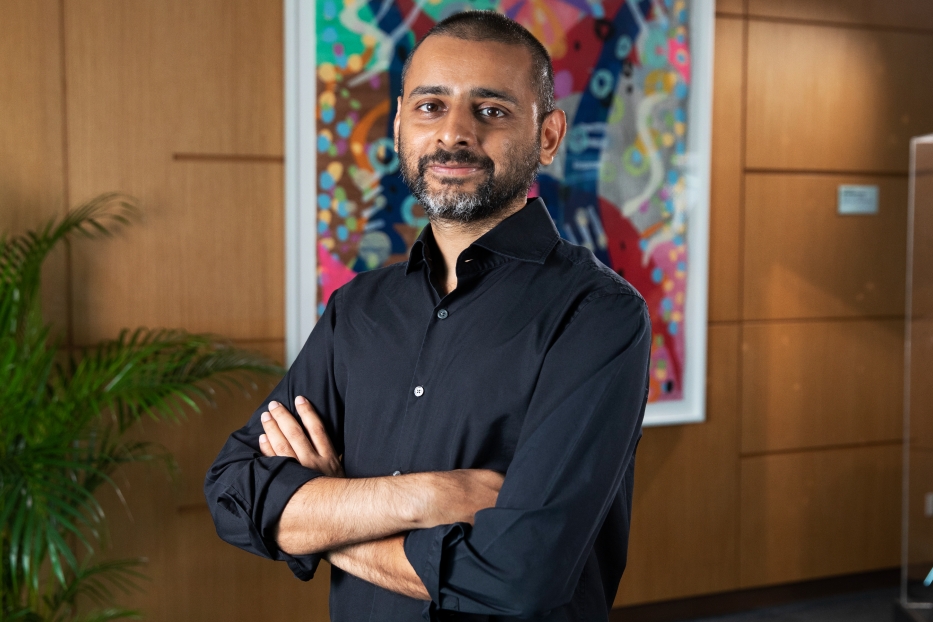Prof Madhav Aney

Feature on Madhav Aney, Associate Professor of Economics (Education)
School of Economics, Singapore Management University
When teaching inspires new research directions
Associate Professor Madhav Aney began his career in economic theory, but teaching at the Singapore Management University led him to a path of understanding how incentives shape societal behaviours in Asia.
Whether we are conscious of them or not, many factors sway our decisions, from our internal beliefs to the prospect of financial gain (or ruin). Even as a society, we respond collectively to the systems and institutions that organise public life, such as laws and government policy.
These intricate strings that pull our decision-making levers have been the study focus of Associate Professor Madhav Aney since a little over a decade ago, when he completed a PhD degree in the principles of mechanism design at the London School of Economics.
“Mechanism design tells us about how people react to the incentives in systems that aim to produce certain outcomes,” he says. “A good tax code, for example, needs to consider the possibility that high taxes may give people more incentive to avoid paying the tax.
Although his early career was grounded in “pen and paper type research”—in other words theory and applied mathematics—Aney’s career took a new turn when he arrived at SMU.
“I was asked to teach economic development in Asia, which involves a lot of empirical content. I was very intrigued by it, which spurred me to actively seek out opportunities to work on empirical projects.” His enthusiasm paid off—he met other academics with similar interests and has not looked back since.
Curiosity fuels a lifetime of learning
Aney has diverse research interests, from politics and the military to market failures and even traffic safety. His continual curiosity about new areas was apparent in his younger days. Having come from a family of lawyers, reading law naturally his first choice; however, his eventual decision was influenced by the different classes he attended out of curiosity.
“After I earned my law degree, I thought of exploring my options before deciding what I wanted for my career,” he shares. “An opportunity came along to study economics, which eventually led to pursuing a master’s program in that field. Even then, I thought I would go back to law eventually—I qualified to practice as a lawyer—but I liked economics so much that I stuck with it.”
While he pursued his interests and career in the field of economics, he has not been myopic in his outlook on research and teaching. His advice for students and early career academics is to be open to exploring different interests. “I initially saw teaching and research as two separate activities. However, staying open-minded helped me nurture a genuine interest in the topics I have been teaching.”
Applying statistical analysis to judicial analysis
Given Aney’s background in law, it may not be surprising that his recent research involves examining constitutional institutions in India.
In the paper Decree power in parliamentary systems: Theory and evidence from India, Aney and Professor Shubhankar Dam from the University of Portsmouth examined how governments use their ability to make executive orders—laws that are made by the executive rather than the legislature—to bypass the legislature.
“Governments with a majority in the legislature would likely be less fearful of keeping the law-making there. Meanwhile, governments that do not have such numbers in the legislature may resort to this executive route more often and more strategically,” he explains, noting their study supported this theory.
His latest published paper examines the incentives influencing the Indian judiciary. In the study Jobs for Justice(s): Corruption in the Supreme Court of India, Associate Prof Aney and his colleagues uncover statistical evidence that Supreme Court judges in India are influenced by the possibility of gaining prestigious post-retirement roles.
“This incentivises the judges to decide in favour of the government in important cases,” he explains. “In turn, these favourable decisions increase the likelihood that the judges would be appointed to such post-retirement roles.”
Now, the team is collecting more evidence of similar patterns that show how structural mechanisms intertwine with individual behaviours and societal outcomes.
“In a sense, what we have found is another confirmation that the incentives operating within a society affect the behaviour of its people,” Aney adds.
Preparing students for the real word
An influence that Aney did not expect to discover was his own influence on his students. The ripple effects of teaching and its power to shape lives did not yet feel concrete to him as he had just entered academia. But after interacting with his students and learning more about their aspirations, he could not help but be filled with gratification in watching them graduate.
“It makes me very happy—and grateful—to see many of my students go on to achieve great things including holding leadership positions and pursuing PhD programs,” he says. “At SOE, we constantly re-examine and update our curriculum to ensure that our students will be equipped with skills that make them job-ready.”
Similarly, in his 13 years of teaching at SOE, Aney has continually renewed his course curriculum, including new research that might interest students, in the same way that economics interested him then as a would-be lawyer.